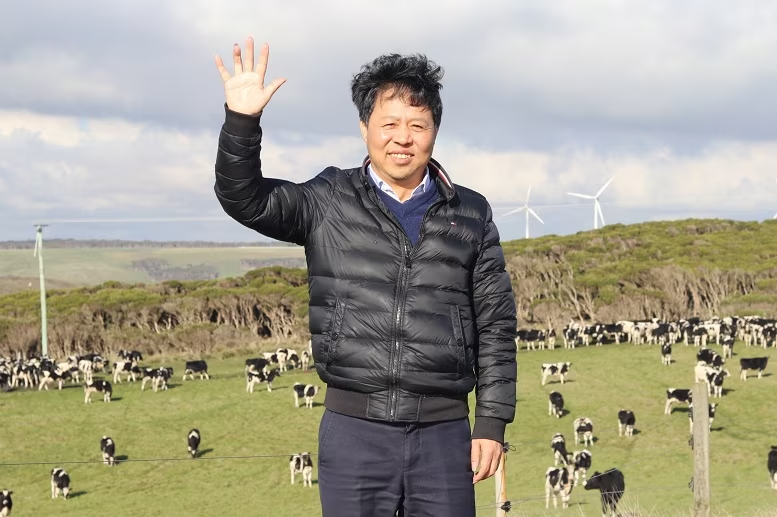 Discover the final chapter of Van Dairy’s legacy as the last piece of the historic Tasmanian dairy farm, Woolnorth, goes on sale. Will you be part of this story?
Discover the final chapter of Van Dairy’s legacy as the last piece of the historic Tasmanian dairy farm, Woolnorth, goes on sale. Will you be part of this story?
The last portion of a historic dairy farming property in Tasmania’s far north-west is hitting the market this week. This was once Australia’s largest dairy operation, but has since been mired in controversy and became the subject of a senate hearing in foreign investments following its 2016 sale. The remaining slice of a 200-year-old farming property is up for sale, marking the end of a turbulent history filled with unrealized grand ambitions, allegations of animal cruelty and mismanagement, and the recent loss of a major milk contract.
“It is with disappointment that I will be placing our remaining landholdings of Woolnorth on the property market, in anticipation of the expiration of our long-term milk supply agreement,” said billionaire Chinese businessman Xianfeng Lu, who purchased the massive land parcel in 2016. “It has been an honour to be the owner and custodian of one of Australia’s most important historic agricultural properties.”
This property’s last sale in 2016 for $280 million was a contentious one, staving off two rival bids by Australian companies in favor of a Chinese investment company. The sale was subject to approval by the then-treasurer Scott Morrison’s Foreign Investment Review Board. At the time of its sale, the operation covered a breathtaking 143,500 hectares, accommodating 17,890 cows over 7,062 hectares. Fast forward to this week, and the announcement has arrived that the last 9,500 hectares of land at the remote Woolnorth will be sold off.
The sale follows hot on the heels of New Zealand dairy giant Fonterra cancelling its 25-million-litres per year milk contract with Mr Lu’s company, Van Dairy Ltd, formerly known as Moon Lake Investments. This result was due to several unresolved commercial factors. Rumours circulated that Mr. Lu sent thousands of his dairy cows to the nearby abattoir for slaughter, with sources confirming a much higher number than the initially reported 700 cows.
When the first plans were announced, Lu had a grand vision of flying millions of litres of fresh Tasmanian milk to Chinese consumers in Ningbo, Shanghai, Hangzhou, and Beijing. Sadly, these plans never came to fruition. Despite the unfulfillment of these plans and various other commitments, at the time of sale, then-federal treasurer Scott Morrison fully supported the investment, suggesting it would result in more jobs in Tasmania.
In 2021, Lu put forward plans to establish a milk powder processing plant at Woolnorth, which would be packaged at a Burnie factory he owned. However, the application was withdrawn two years later in 2023. Yet, despite these setbacks and missteps, the sale of the significant farming property is progressing. Whether the state or federal government will heed Senator Peter Whish-Wilson’s advice to acquire the property to preserve its history is yet to be seen.











